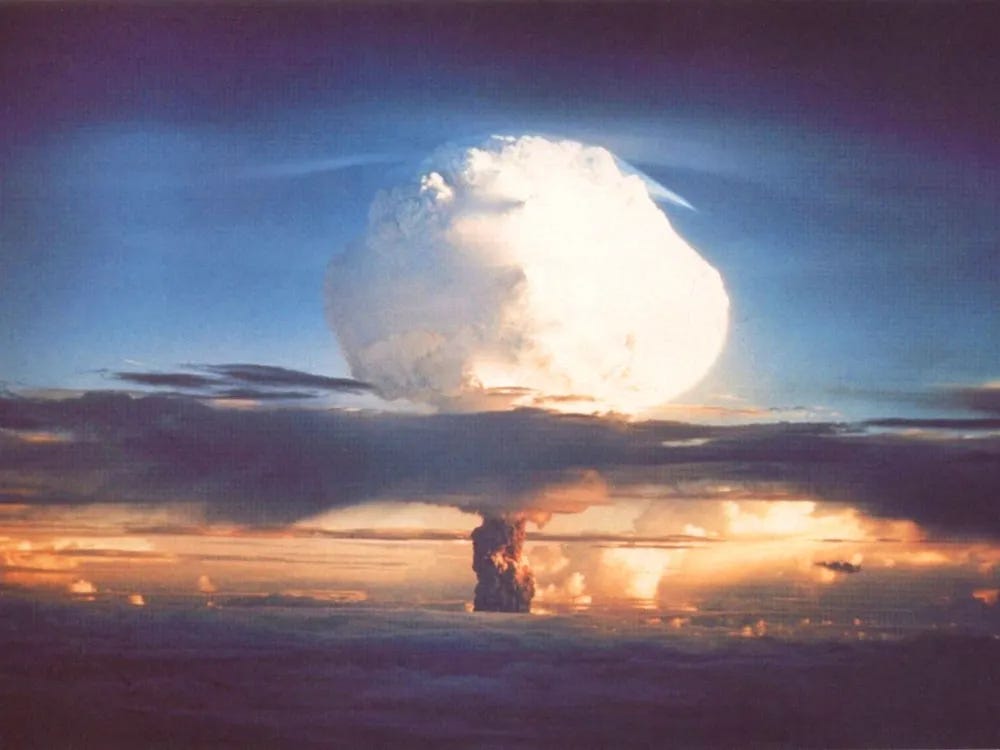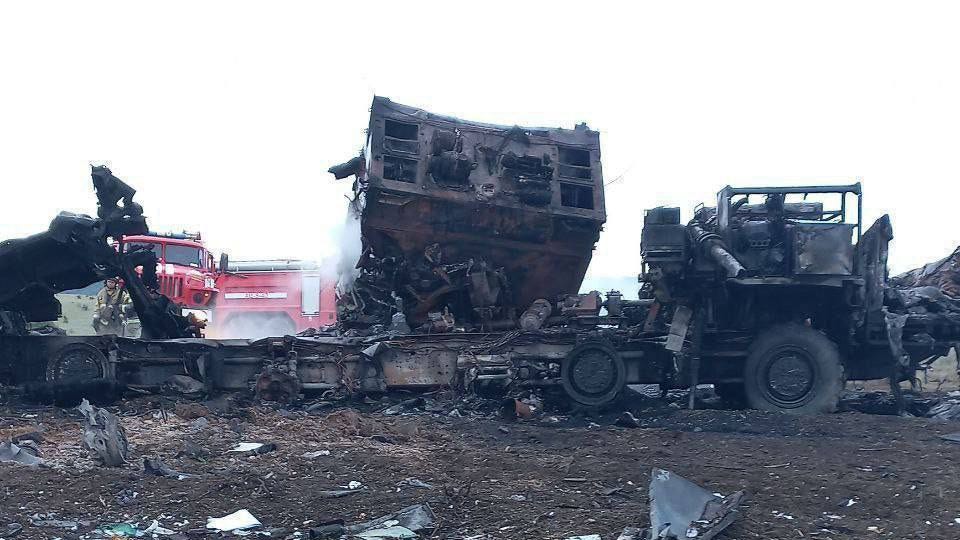This Nuke Expert's Terrifying Novel Is the Warning We Need Right Now
Real life has hewed closely to fictional events in 'The 2020 Commission Report on the North Korean Attacks Against the United States'
This story originally appeared in Vice in 2018.
In November 1983, ABC ran The Day After, a shockingly realistic made-for-T.V. movie about the effects of nuclear war on a town in Kansas. For decades it was the most-watched broadcast in television history. Then-president Ronald Reagan said the film “greatly depressed” him and helped to shift his views on atomic weapons.
Thirty-five years later, the threat of nuclear war was no less real as then-president Donald Trump alternately courted and insulted a nuke-armed North Korea. And a 2020 novel from one of America's leading nuclear policy experts aimed to do what The Day After did, and spur us to action.
Jeffrey Lewis's The 2020 Commission Report on the North Korean Attacks Against the United States takes the form of a 9/11 Commission-style report on a fictionalized war pitting North Korea against South Korea, Japan, and the United States in March 2020. The conflict quickly goes nuclear, claiming millions of lives on both sides.
It's a horror story. But one that Lewis, a professor at the Middlebury Institute of International Studies in California, couches in the dry language of a government study and grounds in real technology, real politics, and the real habits and character of its main characters: North Korean dictator Kim Jong Un and Trump.
The atomic massacre in the novel is triggered by four intersecting errors: North Korean troops mistakenly shoot down a South Korean airliner; Seoul retaliates by striking one of Kim's palaces; Kim, convinced he's being targeted for assassination, then steels himself for a desperate war of survival; at which moment, an inattentive, irritable Trump, distracted by a delayed golf game, tweets a personal insult directed at Kim's sister.
For Kim, the tweet is the final straw. He triggers Pyongyang’s nukes.
When the bombs begin exploding, The 2020 Commission Report becomes very hard to read. Lewis based his descriptions of death and injury on authentic accounts from survivors of the atomic bomb the U.S. dropped on Hiroshima in 1945.
Publisher Houghton Mifflin Harcourt billed The 2020 Commission Report as “speculative fiction.” Step by dreadful step, it shows us an entirely plausible path from today's tense geopolitics to atomic annihilation and beyond, to what comes after nuclear fire. According to Lewis, that’s all by design.
“I stayed as close to reality as possible,” Lewis told me. “Many of the quotes are real ones, repurposed from one context to another. Ideally, the transition from reality to fiction is seamless.”
Lewis said he began writing The 2020 Commission Report in December 2017 and completed the manuscript in April, just months before the real-life summit between Trump and Kim in which Trump agreed to suspend U.S. military exercises with South Korea. In the weeks after, North Korea refused to commit to giving up its nukes, while the Trump administration doubled down on the threats that characterized its pre-summit approach to Kim.
In The 2020 Commission Report, that same dynamic leads to war.
“The book was intended as a warning that we're on a pretty dangerous path,” Lewis said. Still, he told me he was surprised at how closely real events have hewed to the fictional events of his novel.
Like The Day After, The 2020 Commission Report is not a hopeful work. But it ends with a subtle call to action, in the form of a closing statement from the fictional authors of the novel's fictional government report: Now that they have completed their task, the commissioners write of themselves, they return to their lives as private citizens who each possess one vote.
“I think sometimes as a society we get complacent and think that once things get bad enough, we’ll finally learn our lesson and make different decisions,” Lewis said. “I want to shake people out of that sense of complacency. We can see where Trump is leading us. We shouldn’t wait for a nuclear war to make better choices.”
Read more:
Ukraine's ATACMS Raid on Russia's Belbek Air Base Inflicted Maximum Destruction
On Tuesday night, the Ukrainian army’s Army Tactical Missile System batteries targeted Belbek air base, just outside Sevastopol in Russian-occupied Crimea. The base, which lies 150 miles south of the front line in Kherson Oblast, hosts Russian navy Mikoyan MiG-31 interceptors and air forc…






